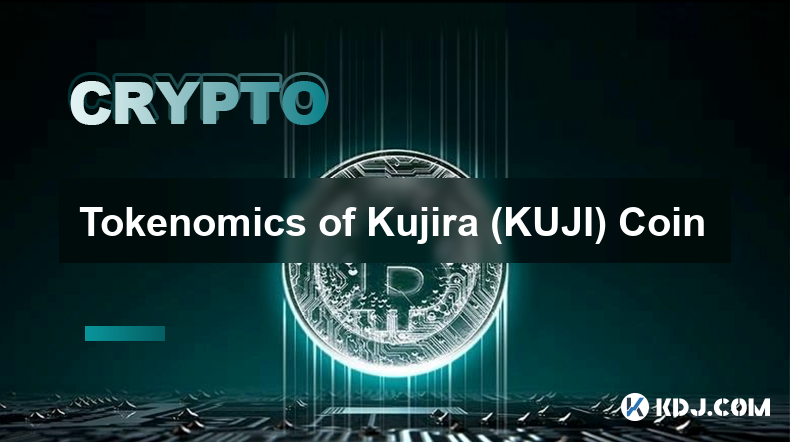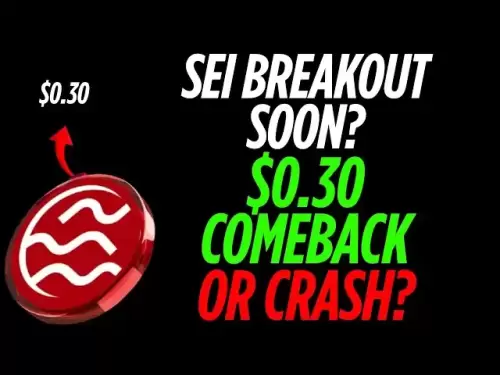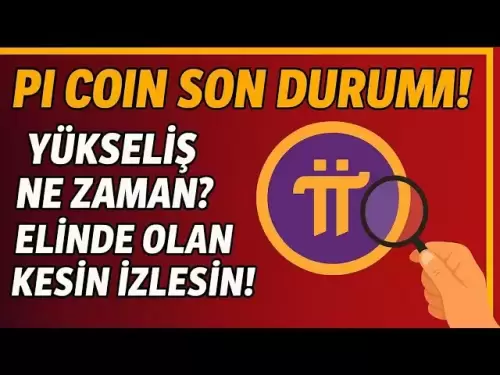-
 Bitcoin
Bitcoin $109,583.2239
0.19% -
 Ethereum
Ethereum $2,583.4612
0.48% -
 Tether USDt
Tether USDt $1.0003
-0.04% -
 XRP
XRP $2.2681
0.70% -
 BNB
BNB $659.9218
-0.52% -
 Solana
Solana $151.4961
-0.37% -
 USDC
USDC $0.9999
-0.02% -
 TRON
TRON $0.2861
1.20% -
 Dogecoin
Dogecoin $0.1718
0.04% -
 Cardano
Cardano $0.5960
-0.07% -
 Hyperliquid
Hyperliquid $40.1233
2.85% -
 Sui
Sui $2.9974
2.48% -
 Bitcoin Cash
Bitcoin Cash $497.1279
-1.76% -
 Chainlink
Chainlink $13.7275
-0.22% -
 UNUS SED LEO
UNUS SED LEO $9.0241
0.70% -
 Avalanche
Avalanche $18.5536
-0.88% -
 Stellar
Stellar $0.2421
1.39% -
 Toncoin
Toncoin $2.8593
-0.51% -
 Shiba Inu
Shiba Inu $0.0...01187
-0.07% -
 Litecoin
Litecoin $90.0023
2.90% -
 Hedera
Hedera $0.1590
2.79% -
 Monero
Monero $322.1495
0.00% -
 Polkadot
Polkadot $3.5453
-1.00% -
 Dai
Dai $1.0000
-0.01% -
 Bitget Token
Bitget Token $4.5733
-1.06% -
 Ethena USDe
Ethena USDe $1.0002
-0.01% -
 Uniswap
Uniswap $7.6345
3.03% -
 Aave
Aave $279.2583
0.47% -
 Pepe
Pepe $0.0...01003
-1.52% -
 Pi
Pi $0.4941
-0.32%
Tokenomics of Kujira (KUJI) Coin
Kujira's KUJI Coin's tokenomics provide value through revenue sharing, governance, ecosystem adoption, multi-utility, and a deflationary supply mechanism.
Dec 26, 2024 at 08:52 pm

Key Points:
- Understanding Tokenomics: Definition and Components
- Kujira (KUJI) Coin Overview and Functionality
- Token Distribution and Allocation Model
- Tokenomics of KUJI Coin: Potential Value Drivers
- Key Metrics and Performance Indicators of KUJI Coin
Understanding Tokenomics: Definition and Components
Tokenomics refers to the economic model and structure underlying a cryptocurrency or token. It encompasses the issuance, distribution, and utility of tokens within the project's ecosystem. Essential components of tokenomics include:
- Token Supply: The total number of tokens created or planned to be created.
- Token Allocation: The distribution of tokens among stakeholders, including founders, team, investors, and the community.
- Token Utility: The specific roles and functions assigned to tokens within the project's ecosystem, such as governance, staking, or payment.
- Token Value: The perceived and market-driven value of tokens, based on factors such as demand, utility, and supply.
Kujira (KUJI) Coin Overview and Functionality
Kujira (KUJI) Coin is the native cryptocurrency of the Kujira blockchain. Kujira is a decentralized finance (DeFi) platform offering a suite of lending, borrowing, and trading services. The KUJI Coin serves as:
- Governance Token: Holders can participate in decision-making and vote on proposals related to the Kujira ecosystem.
- Utility Token: Used to pay transaction fees on the Kujira platform, enabling users to access its services and earn rewards.
- Staking Token: Staking KUJI Coins allows holders to participate in the platform's consensus mechanism and earn additional rewards.
Token Distribution and Allocation Model
Kujira's Tokenomics model distributes the total supply of 500 million KUJI Coins as follows:
- Community (Airdrop): 52%
- Team: 25%
- Seed Sale: 10%
- Private Sale: 10%
- Ecosystem Fund: 3%
Tokenomics of KUJI Coin: Potential Value Drivers
- Protocol Revenue Sharing: A percentage of fees generated on the Kujira platform is distributed to KUJI Coin holders in proportion to their staked coins.
- Governance and Voting: Participation in governance and voting mechanisms ensures the alignment of holders' interests with the long-term health of the Kujira ecosystem.
- Platform Adoption and Network Effects: As the Kujira platform gains traction and attracts more users, increased demand for KUJI Coins may drive their value.
- Multi-Utility Token: The versatility of KUJI Coins, serving various functions within the ecosystem, enhances their overall utility and potential value.
- Deflationary Supply: Kujira implements a periodic token burn mechanism, reducing the total supply of KUJI Coins and potentially increasing their scarcity and value.
Key Metrics and Performance Indicators of KUJI Coin
- Circulating Supply: The total number of KUJI Coins currently in circulation, indicating the available liquidity and demand for the token.
- Market Price: The real-time market value of KUJI Coins, reflecting the market's perception of their value and utility.
- Trading Volume: The amount of KUJI Coins being traded on different exchanges, indicating the liquidity and market activity surrounding the token.
- Token Holder Growth: The number of unique wallets holding KUJI Coins, indicating the adoption and interest in the Kujira platform and the token itself.
- Developer Activity: The level of active development and updates on the Kujira platform, contributing to the ongoing value and functionality of the token.
FAQs
Q: What is the total supply of KUJI Coins?
A: 500 million KUJI Coins
Q: Who receives the community airdrop?
A: Members of the Kujira community who meet eligibility criteria.
Q: How is token value accrual achieved for KUJI Coin holders?
A: Through revenue sharing, governance, platform adoption, multi-utility, and deflationary supply mechanisms.
Q: Where can I buy and trade KUJI Coins?
A: Exchanges that support the token, such as KuCoin, Gate.io, and PancakeSwap.
Q: What is the current use case for KUJI Coins on the Kujira platform?
A: Transaction fees, staking, governance, and rewards.
Disclaimer:info@kdj.com
The information provided is not trading advice. kdj.com does not assume any responsibility for any investments made based on the information provided in this article. Cryptocurrencies are highly volatile and it is highly recommended that you invest with caution after thorough research!
If you believe that the content used on this website infringes your copyright, please contact us immediately (info@kdj.com) and we will delete it promptly.
- House, Trump Bill, Bitcoin Rally: A New York Minute on Macro and Crypto
- 2025-07-04 10:30:12
- Coin Master Free Spins: Your Daily Dose of Links (July 2025)
- 2025-07-04 10:50:12
- Crypto's Dual Lifeline: Bitcoin ETFs Soar as Stablecoins Bolster US Treasuries
- 2025-07-04 10:30:12
- Altcoins in July 2025: Market Momentum and Top Picks
- 2025-07-04 11:10:12
- Qubetics Price Prediction: Analysts See $10-$15 in 2026 - Is It Just Hype?
- 2025-07-04 10:35:12
- LILPEPE: The Meme Coin Primed for Explosive Growth with Blockchain Tech
- 2025-07-04 08:50:13
Related knowledge

How to customize USDT TRC20 mining fees? Flexible adjustment tutorial
Jun 13,2025 at 01:42am
Understanding USDT TRC20 Mining FeesMining fees on the TRON (TRC20) network are essential for processing transactions. Unlike Bitcoin or Ethereum, where miners directly validate transactions, TRON uses a delegated proof-of-stake (DPoS) mechanism. However, users still need to pay bandwidth and energy fees, which are collectively referred to as 'mining fe...

USDT TRC20 transaction is stuck? Solution summary
Jun 14,2025 at 11:15pm
Understanding USDT TRC20 TransactionsWhen users mention that a USDT TRC20 transaction is stuck, they typically refer to a situation where the transfer of Tether (USDT) on the TRON blockchain has not been confirmed for an extended period. This issue may arise due to various reasons such as network congestion, insufficient transaction fees, or wallet-rela...

How to cancel USDT TRC20 unconfirmed transactions? Operation guide
Jun 13,2025 at 11:01pm
Understanding USDT TRC20 Unconfirmed TransactionsWhen dealing with USDT TRC20 transactions, it’s crucial to understand what an unconfirmed transaction means. An unconfirmed transaction is one that has been broadcasted to the blockchain network but hasn’t yet been included in a block. This typically occurs due to low transaction fees or network congestio...

How to check USDT TRC20 balance? Introduction to multiple query methods
Jun 21,2025 at 02:42am
Understanding USDT TRC20 and Its ImportanceUSDT (Tether) is one of the most widely used stablecoins in the cryptocurrency market. It exists on multiple blockchain networks, including TRC20, which operates on the Tron (TRX) network. Checking your USDT TRC20 balance accurately is crucial for users who hold or transact with this asset. Whether you're sendi...

What to do if USDT TRC20 transfers are congested? Speed up trading skills
Jun 13,2025 at 09:56am
Understanding USDT TRC20 Transfer CongestionWhen transferring USDT TRC20, users may occasionally experience delays or congestion. This typically occurs due to network overload on the TRON blockchain, which hosts the TRC20 version of Tether. Unlike the ERC20 variant (which runs on Ethereum), TRC20 transactions are generally faster and cheaper, but during...

The relationship between USDT TRC20 and TRON chain: technical background analysis
Jun 12,2025 at 01:28pm
What is USDT TRC20?USDT TRC20 refers to the Tether (USDT) token issued on the TRON blockchain using the TRC-20 standard. Unlike the more commonly known ERC-20 version of USDT (which runs on Ethereum), the TRC-20 variant leverages the TRON network's infrastructure for faster and cheaper transactions. The emergence of this version came as part of Tether’s...

How to customize USDT TRC20 mining fees? Flexible adjustment tutorial
Jun 13,2025 at 01:42am
Understanding USDT TRC20 Mining FeesMining fees on the TRON (TRC20) network are essential for processing transactions. Unlike Bitcoin or Ethereum, where miners directly validate transactions, TRON uses a delegated proof-of-stake (DPoS) mechanism. However, users still need to pay bandwidth and energy fees, which are collectively referred to as 'mining fe...

USDT TRC20 transaction is stuck? Solution summary
Jun 14,2025 at 11:15pm
Understanding USDT TRC20 TransactionsWhen users mention that a USDT TRC20 transaction is stuck, they typically refer to a situation where the transfer of Tether (USDT) on the TRON blockchain has not been confirmed for an extended period. This issue may arise due to various reasons such as network congestion, insufficient transaction fees, or wallet-rela...

How to cancel USDT TRC20 unconfirmed transactions? Operation guide
Jun 13,2025 at 11:01pm
Understanding USDT TRC20 Unconfirmed TransactionsWhen dealing with USDT TRC20 transactions, it’s crucial to understand what an unconfirmed transaction means. An unconfirmed transaction is one that has been broadcasted to the blockchain network but hasn’t yet been included in a block. This typically occurs due to low transaction fees or network congestio...

How to check USDT TRC20 balance? Introduction to multiple query methods
Jun 21,2025 at 02:42am
Understanding USDT TRC20 and Its ImportanceUSDT (Tether) is one of the most widely used stablecoins in the cryptocurrency market. It exists on multiple blockchain networks, including TRC20, which operates on the Tron (TRX) network. Checking your USDT TRC20 balance accurately is crucial for users who hold or transact with this asset. Whether you're sendi...

What to do if USDT TRC20 transfers are congested? Speed up trading skills
Jun 13,2025 at 09:56am
Understanding USDT TRC20 Transfer CongestionWhen transferring USDT TRC20, users may occasionally experience delays or congestion. This typically occurs due to network overload on the TRON blockchain, which hosts the TRC20 version of Tether. Unlike the ERC20 variant (which runs on Ethereum), TRC20 transactions are generally faster and cheaper, but during...

The relationship between USDT TRC20 and TRON chain: technical background analysis
Jun 12,2025 at 01:28pm
What is USDT TRC20?USDT TRC20 refers to the Tether (USDT) token issued on the TRON blockchain using the TRC-20 standard. Unlike the more commonly known ERC-20 version of USDT (which runs on Ethereum), the TRC-20 variant leverages the TRON network's infrastructure for faster and cheaper transactions. The emergence of this version came as part of Tether’s...
See all articles

























































































